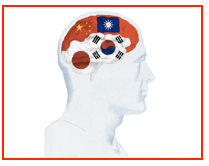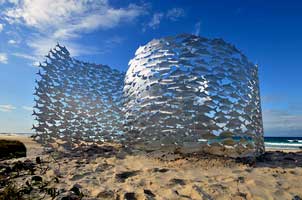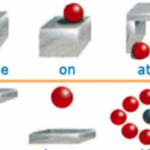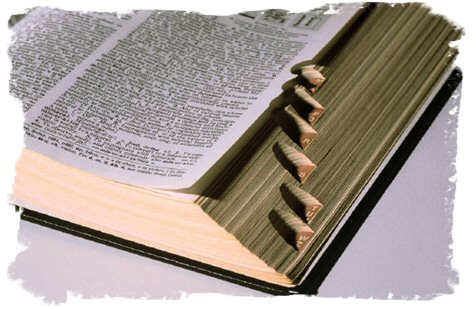 A few months ago, I did an hour-long interview with Stephan Si-Hwan Park at his Online School for Unconventional Academics about language learning and book deals. He recently released that video to the public, so check it out!
A few months ago, I did an hour-long interview with Stephan Si-Hwan Park at his Online School for Unconventional Academics about language learning and book deals. He recently released that video to the public, so check it out!

Tips, tutorials and resources to aid you on your path towards fluency.
Author Archives: gwyner
Translated Google Image links for Language Learning (New, easier setup)
I’ve talked about this tool a few times so far. Basically, you do a Google Images search in your target language, you switch to Basic Mode (which reveals captions beneath each picture), and then you stick the whole gigantic URL into Google Translate, which puts those captions back into English.
Workshops at the University of Vienna! (and other news)
 In partnership with the Online School for Unconventional Academics, I’m putting on a day-long language learning workshop at the University of Vienna on March 30th, 2013. (And if there’s enough interest, an additional two workshops in April and May) If any of you are nearby, then check it out! For those of you who aren’t in Vienna, you might find the little workshop website entertaining anyways; there’s a 20 minute interview about language learning methods, and a little demo of my languages.
In partnership with the Online School for Unconventional Academics, I’m putting on a day-long language learning workshop at the University of Vienna on March 30th, 2013. (And if there’s enough interest, an additional two workshops in April and May) If any of you are nearby, then check it out! For those of you who aren’t in Vienna, you might find the little workshop website entertaining anyways; there’s a 20 minute interview about language learning methods, and a little demo of my languages.
Learning grammar and abstract words without translation
Preposition Images for Anki

Just a short post that should prove useful if you’ve had trouble finding good pictures for prepositions (on, over, between) or directions (up, down, top, bottom). I found a lovely image of 29 prepositions in English on a language learning site for French students of English, Angloxchange. It has a bunch of English labels on it, but I cut the image up into little chunks, so you should be able to drag and drop your favorites into Anki.
You’ll find the (cut up) image over here
New: A reader just suggested a Slovak website with 12 preposition images in the forms of cute sheep. If you prefer sheep to red balls, check them out here.
How to use iMacros to automate your word research
 When I learn a new word, I look it up in 4 places:
When I learn a new word, I look it up in 4 places:
- Google Images on Steroids (Hungarian site, basic mode, inside of Google Translate) [I talk about setting this up here]
- Forvo.com for audio recording (Skipping to Hungarian entry directly)
- A decent Hungarian-English Dictionary (I use Sztaki szótár)
- A decent Hungarian-Hungarian Dictionary (I use Wikiszótár, inside of Google Translate)
This gives me everything I need to make my cards quickly, but it’s a pain in the butt to enter my word into Anki, then do it 4 more times into the search fields, especially when #1 and #4 (the sites I’ve preloaded into Google translate) don’t let you enter things into their search fields directly (it kills the Google translate part).
I found a solution last night.
Foreign Language Dictionary Reviews (Part 1: Pronunciation)

This is some early bookstore research for a bunch of foreign language dictionary reviews. I went to two large bookstores (The enormous Half Price Books and the equally enormous Barnes & Noble in Dallas) and wrote down the names of pretty-much every dictionary they had in every language they carried, and also noted whether they included pronunciation information (and if so, whether it was IPA, some formal system (pinyin, romaji), some random system they invented, or some terrible English approximation [Bawn-JOOR]). I’ve tried to provide Amazon links to as many dictionaries as possible.
How to learn a language’s sound system with Anki
I’ve been fielding questions about my methods for Hungarian and how they might work for a less phonetic language like French, with multiple ways of spelling a single sound. Today, I made a 44-card sample deck for French, which you’re welcome to download and use as a model here.
The sample deck includes 3 chunks:
- Minimal pair practice
- Spelling rules
- Basic picture words
Hungarian: Pronunciation and what’s next (Concrete Vocabulary)
Using the deck I made on Dec 21, it took me 9 days at <20 minutes/day to basically learn the sounds of Hungarian and the Hungarian alphabet. Total time spent: 4 hrs of deck creation, 2.5 hours of reviews over a 10 day period. This is working very well so far (and it’s a lot of fun!), and I’m ready to move to the next stage: concrete vocabulary.
My next language project: Hungarian
Today marks the end of Russian and the beginning of Hungarian. I plan to spend 6-12 months on the language, and I’m aiming for an intermediate, moderately comfortable level of speaking (and the ability to read a book and handle a dubbed American TV series [which hopefully exists! Haven't yet checked])